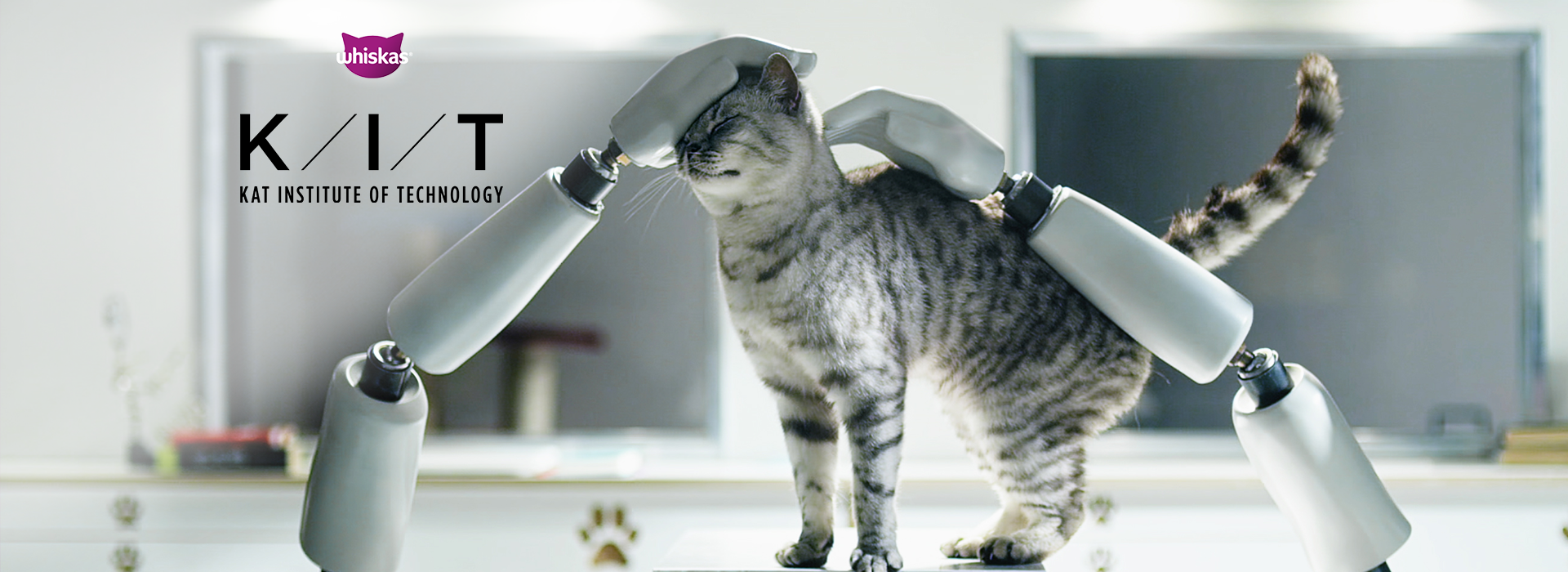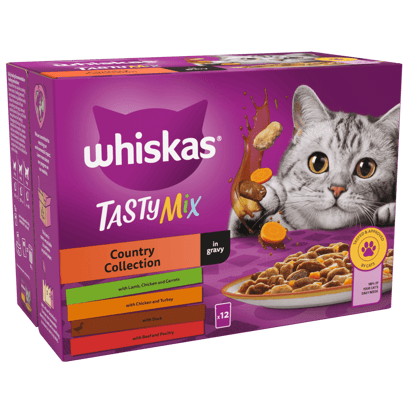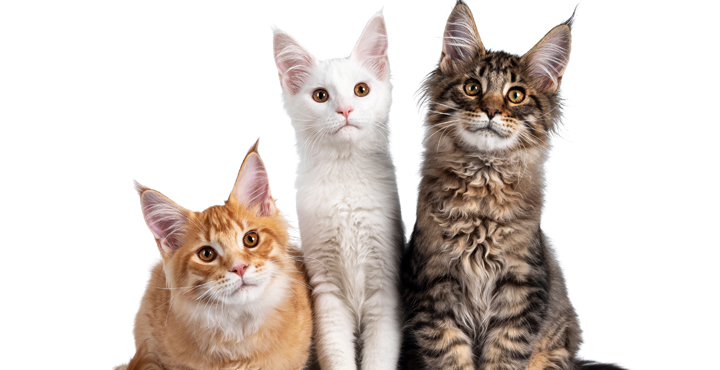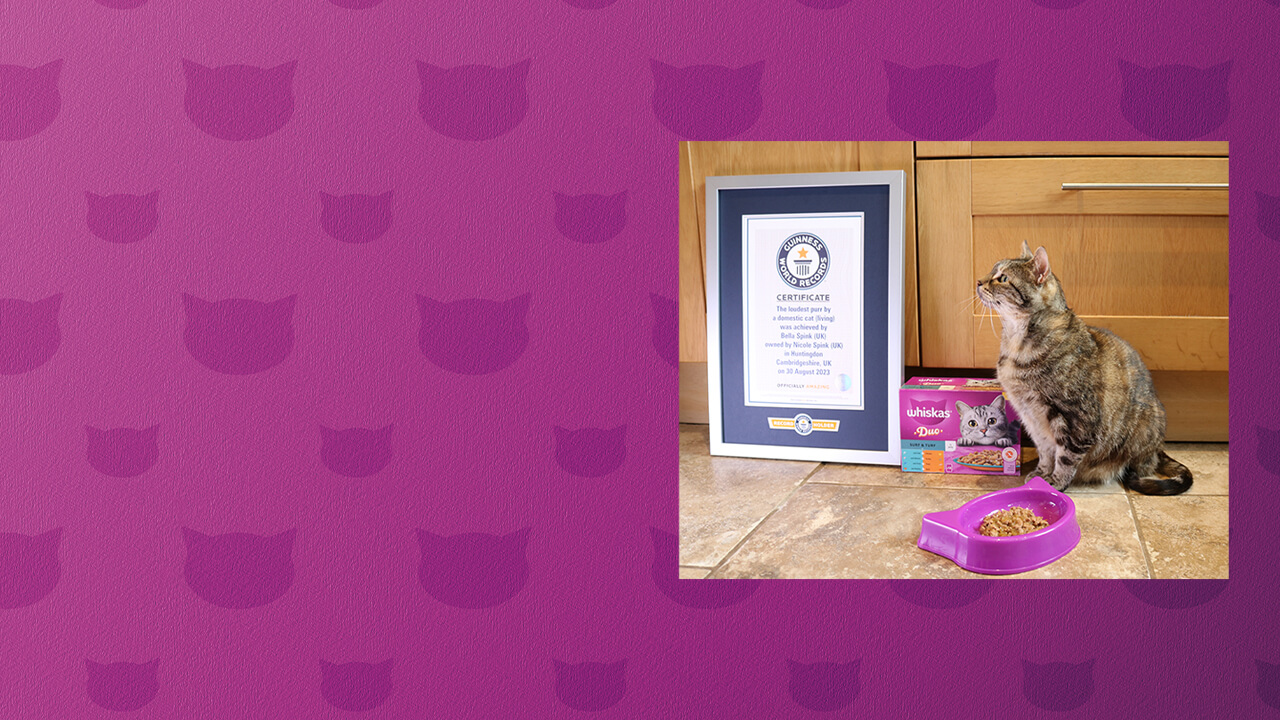
The skin and fur or hair of a cat is nourished from the inside so the most important thing you can do to achieve a healthy coat is to feed your cat a complete and balanced diet that is enriched with all of the nutrients they need to maintain a healthy skin and coat.
Here’s a list of things to consider in caring for your cat’s skin and coat:
• Does your cat have any bald patches? Red, inflamed or sore skin? Matted fur, damp patches of skin? Itchy skin, scabs or bleeding patches? If so, they should be taken to the vet to start appropriate medication.
• Some cats can be allergic to parasites such as flea bites. Once treated, this can be prevented with regular flea prevention treatment.
• It’s also advisable to keep on top of worm prevention treatment as internal parasites can stop your cat absorbing all of the nutrients from the food.
• Regular grooming, cats love to be groomed and enjoy regular brushing to keep their coat clean and in good, tangle free condition, this is particularly important for long-haired cats.
• Watch their weight, if cats become overweight, they can struggle to reach their entire coat for daily grooming and you may start to see dandruff appear in their coat.
• Under normal circumstances there is no need to bath a cat and that’s good because (most) cats hate it!
• Cats claw naturally shed and shouldn’t need cutting. It’s important that cats maintain sharp long claws as they use them in daily activities like climbing. If you are concerned about your cat's claws take them to see the nurse at your local vet practice for advice.








